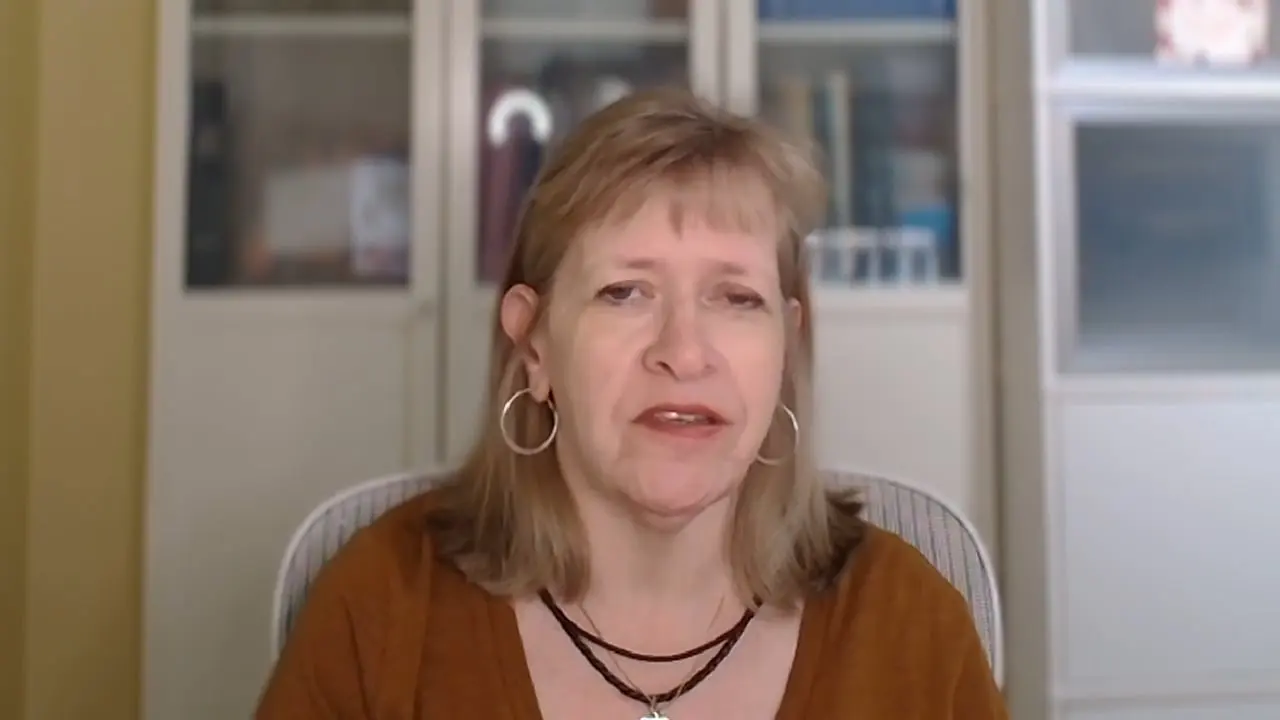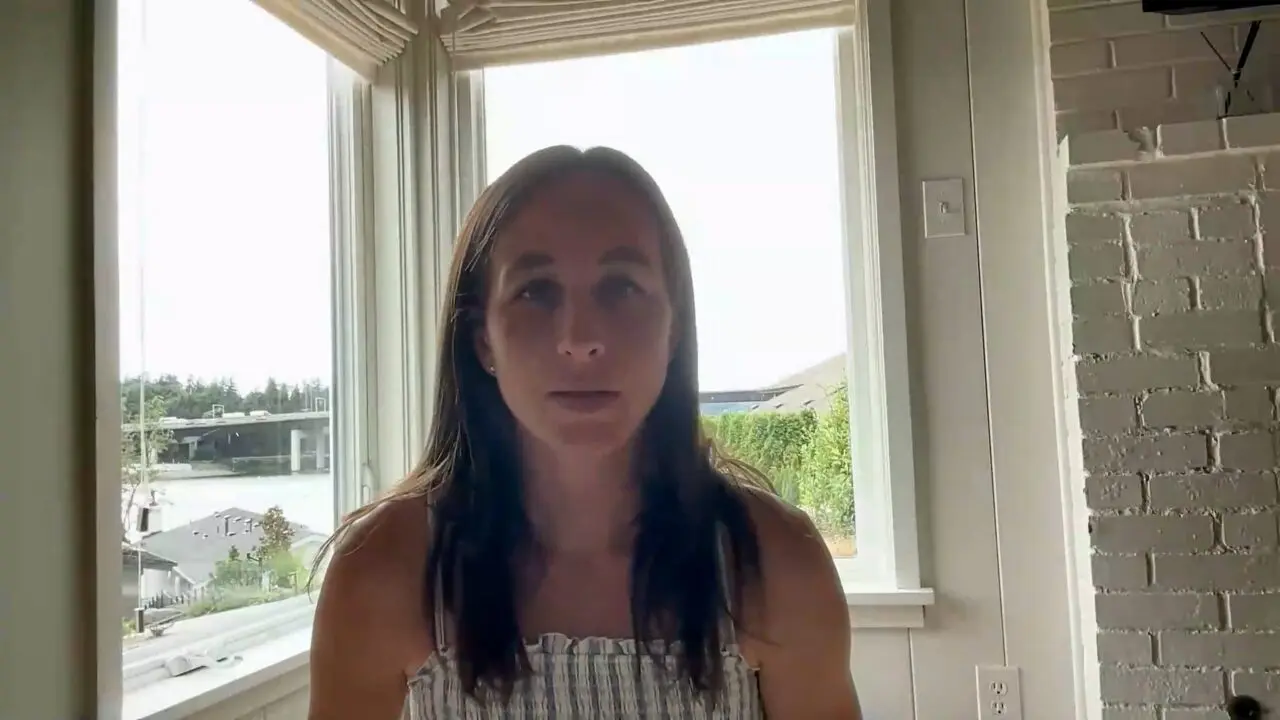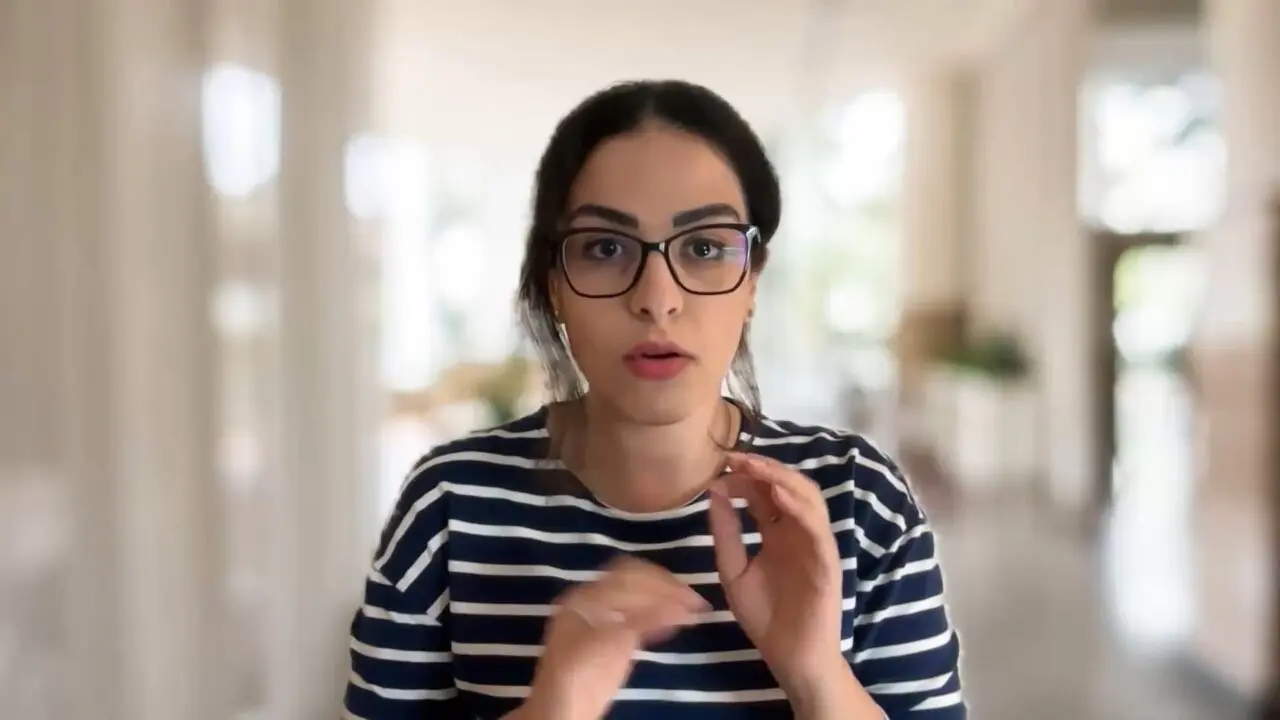Grounding Skills
When you’re overwhelmed or anxious, grounding skills help you feel more centered and calm. (They also can just feel good, even when you’re not upset!)
Stories

I had heard it before, and it didn't really sink in.

I've struggled with eating issues...so the whole idea of being present in my body has been terrifying.

"The worst case scenario hasn't happened yet, so I need to focus on what is happening right now. Coming back to the moment helps decrease my anxiety and not reach the red zone."
Community Tips
I think people really need to know that these can actually make you feel much more anxious at first if you have a trauma history or have been really struggling for a long time. Find something small, like a Warhead candy ‑ maybe don’t start with a breathing exercise if you are struggling with it.
I’m autistic, and the grounding steps are something I see a lot of people talking about online. It takes me a long time to come down from stress, so I’m using these to help.
I get this really weird feeling sometimes, like it feels like everything is unsafe and my body feels so different. Maybe it’s anxiety, but it feels different than regular anxiety. Tapping helps my body feel less freaky and the 5‑4‑3‑2‑1 helps with my racy/disjointed sort of thoughts.
My job is the biggest stress. Let’s just say, I’m the only Black person in my office. I need the job until I can find another. I do the Paced Breathing in meetings. I splash cold water on my wrists and face when I think I’m going to scream.
I was in a car accident with my Mom and I saw her die. Some smells and sounds can still affect me. Exposure therapy is helping, and I still use these grounding techniques to help bring me back when I start to dissociate. I don’t dissociate as much anymore.
My two sibling cats, who I’ve had for over 16 years, died one after another. It was so painful and sometimes I really needed to be present ‑ for making decisions and driving. I would clench my fists while taking a deep breath, and relax for a breath ‑ then repeat.
I’m an elementary school teacher with really bad anxiety and I used grounding techniques every day in my classroom. I make it into a game for my students and we practice together‑it helps them too, and they don’t realize that I am doing it because I need it.
I get this floaty feeling when I’m extremely anxious or having intense emotions; I get so overwhelmed that I tip into feeling nothing and am really spacey. It’s like I’m watching myself from a distance. Sometimes it is a relief, but lots of times it feels scary and gets in the way of me doing what I need to do. I started to keep strong essential oils with me to rub on my wrists; taking deep breaths while taking in the scent can get me a little more back in the present without being too jarring.
I had a counselor tell me once that an important thing to remember with triggers and even making a plan is, it doesn't erase the trigger. It's not gonna just go away. And there are going to be times when that trigger still comes through because sometimes trauma hurts. So just like an arthritic knee that starts hurting and you take arthritis medicine or put Ben Gay on it, or whatever, and that pain comes back‑‑It's not a failure on your part, You didn't do something wrong just because the plan didn't eliminate it.
Why Use this Skill
It’s a common experience for people to feel spacey, shaky, tense, or disconnected when they’re upset. Grounding skills can help you bring some steadiness back into your body, which can feel calming and empowering.
When to Use This Skill
Use grounding skills when:
- You’re feeling anxious, stressed, or upset.
- You’re feeling dissociated, numb, frozen, or spacey.
- You want to practice embodiment or mindfulness.
- You’re looking for a daily wellness routine.
How to Use This Skill
Grounding skills are all about focusing on the present moment. While many forms of distraction can be used as grounding skills, paying attention to physical sensations can be super powerful.
Some of our members’ favorite grounding skills:
- The 5-4-3-2-1 technique: right now, find and name 5 things around you that you can see, 4 things you can touch, 3 things you can hear, 2 things you can smell, and 1 thing you can taste.
- Put your face in water, take a shower, or put your hands under running water.
- Eat something intense like hot sauce, sour candy, kimchi, pop rocks candy, or ginger chews.
- Stomp your feet on the ground, or take your shoes off and notice what your feet feel like against the ground. Try walking on grass or dirt.
- Take five super slow breaths, making the exhale as long as possible.
- Clench your fists or squeeze yourself in a tight hug, then relax. Repeat as feels good.
- Go on a walk, dance, shake, or move your body how you want to move.
- Tap or lightly touch your body in a steady rhythm to help you feel calm and safe.
When you’re upset, grounding skills help by distracting you from painful thoughts. Some skills (like cold water and paced breathing) regulate your nervous system, too.
Grounding skills are useful even when you’re not upset, particularly if you use soothing or pleasurable sensations. They can help you feel more centered at the beginning or end of a busy day. They also offer simple ways to include mindfulness and embodiment in your normal self-care routines.
Related Skills
Pleasant Events
Do things that feel good.
PLEASES
Take care of your body to take care of your mind.
Self‑Soothing
Nurture yourself with physical comfort and pleasure.
Self‑Encouragement
Cheerlead yourself.